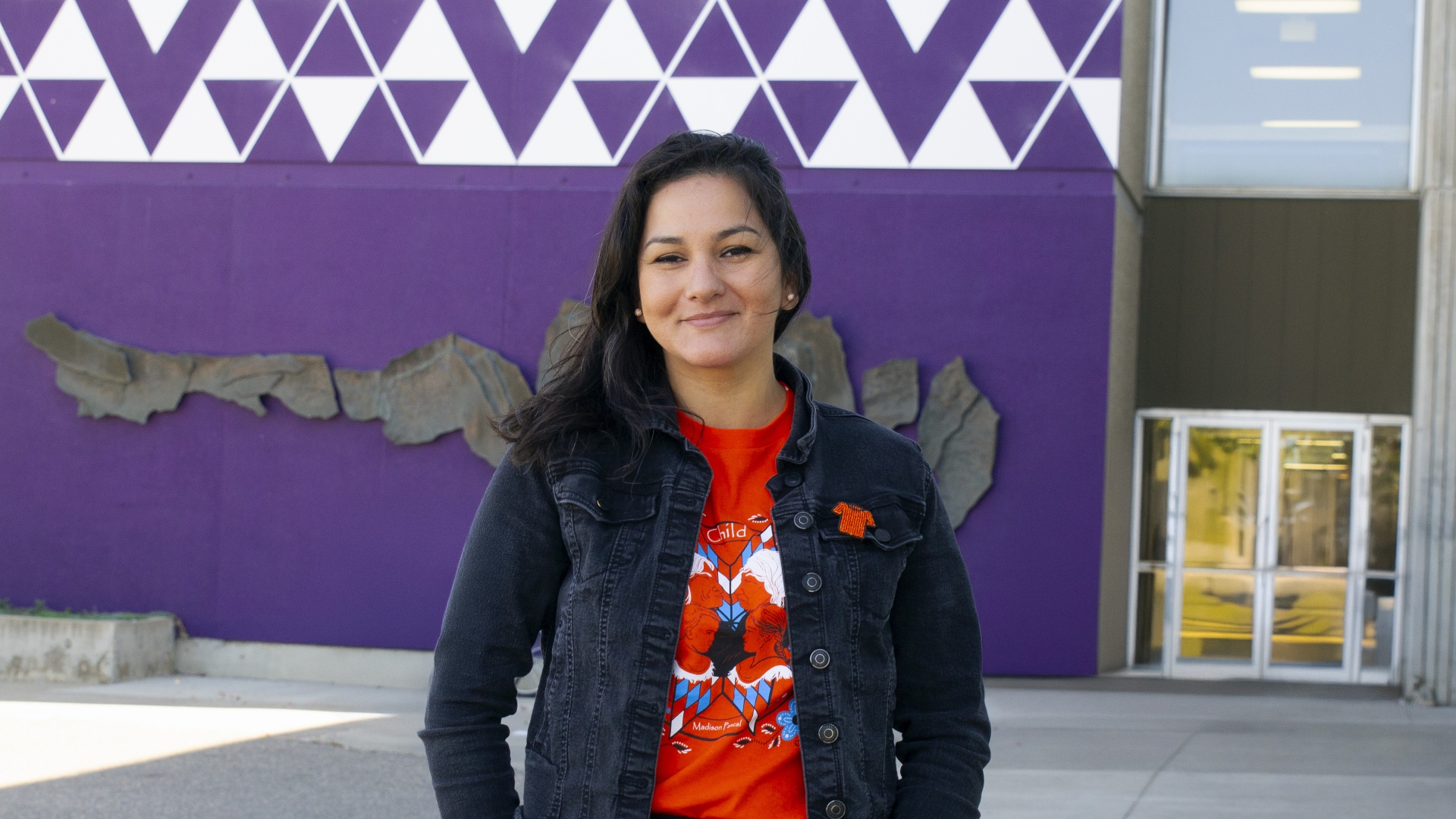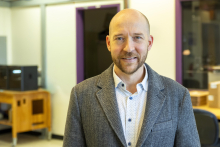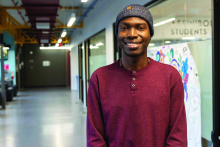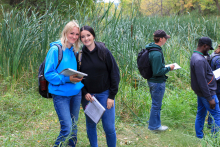Turning Points: Indigenous Student Recruitment Specialist Erin Chartrand reflects on her journey back to Assiniboine
October 2, 2025
When Erin Chartrand stepped into her new role this summer as the Indigenous Student Recruitment Specialist at Assiniboine College, it felt less like starting a new job and more like returning home — a home where she once walked the halls as a student, figuring out her own future.
Chartrand grew up at Skownan First Nation, a small community just north of Dauphin. The word skownan translates to “turning point”, a meaning derived from the two large bodies of water on either side of the community; when you reach them, you must turn around. The word skownan has also become a metaphor for much of Chartrand’s journey to her new role at Assiniboine. A collection of turning points that allowed her to focus on her next goal.
“Skownan will always be home to me.” she says. “Growing up in a small community, we spent much of our time outdoors. That’s where I learned to explore, take risks, stay humble with what we had, respect the land, and appreciate the beauty of our surroundings.” Leaving those surroundings in search of new opportunities in 2007 was a difficult step, but was one of necessity.
“As a new parent and recent high school graduate, I needed both a job and childcare. Since employment opportunities in my community were limited, I travelled to Waterhen, where I was hired as a Child Care Assistant and given a daycare spot. If you had asked me in high school whether I liked kids, and wanted to work with them, my answer would have been a hard no,” she said with a chuckle. “But I learned quickly and was encouraged by many former colleagues to pursue Early Childhood Education (ECE).”
She initially moved to Winnipeg, but found the city to be too much of a culture shock when compared to her community of roughly 300 residents. That’s when she decided to pivot to Assiniboine College in Brandon to pursue her ECE education.
“Being at Assiniboine gave me confidence. It wasn’t just about the program I was taking, it was the people, the support, and the feeling that I was part of something bigger.”
Her time at the college also taught her that representation matters. She remembers how impactful it was to see Indigenous staff, students, and supports on campus, and how much it reassured her to know she wasn’t alone.
“When students see themselves reflected in the college, in the staff, the programming, and the culture, it builds trust. It shows them they belong here.”
Those memories now fuel her work as a recruiter.
In approaching the role, she often recalls the words of the late Honorable Justice Murray Sinclair, chair of Canada’s Truth and Reconciliation Commission: “Education got us into this mess and education will get us out of it.”
“That really resonates with me,” Chartrand says. “As the new Indigenous Student Recruitment Specialist, I want to support students and their families in seeing post-secondary as a place where we belong, and that education is key to building thriving communities.”
For Chartrand, her approach to her work is also rooted in the Seven Teachings, values she carried with her as a student and still lives by today. One in particular, Sabe, guides her the most. “Sabe teaches us to be honest with ourselves and with others,” she explains. “It’s what grounds me. It helped me when I was a student, and now it helps me meet students where they are, without judgment, and walk alongside them as they figure out their path.”
Her journey from student to staff at Assiniboine reflects the transformative power of education. She knows what it feels like to sit in those classrooms, to balance hope with uncertainty, and to wonder if you’re making the right choices. Now, she is often the first person prospective students meet from Assiniboine; she is the voice of encouragement she once looked for, and a guide who reminds learners that their stories matter, their education matters, and that they belong.
“I’m honoured to be part of this work at an institution I truly believe in,” she shared. By guiding others to see post-secondary education as a turning point in their life, Chartrand continues a circle of learning and reconciliation—one that ensures the choices made today will help build a stronger, thriving, tomorrow.




